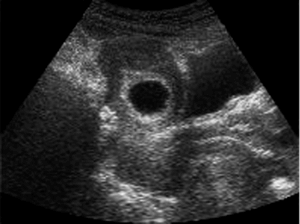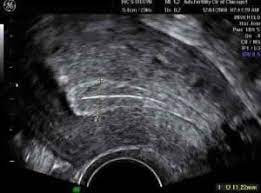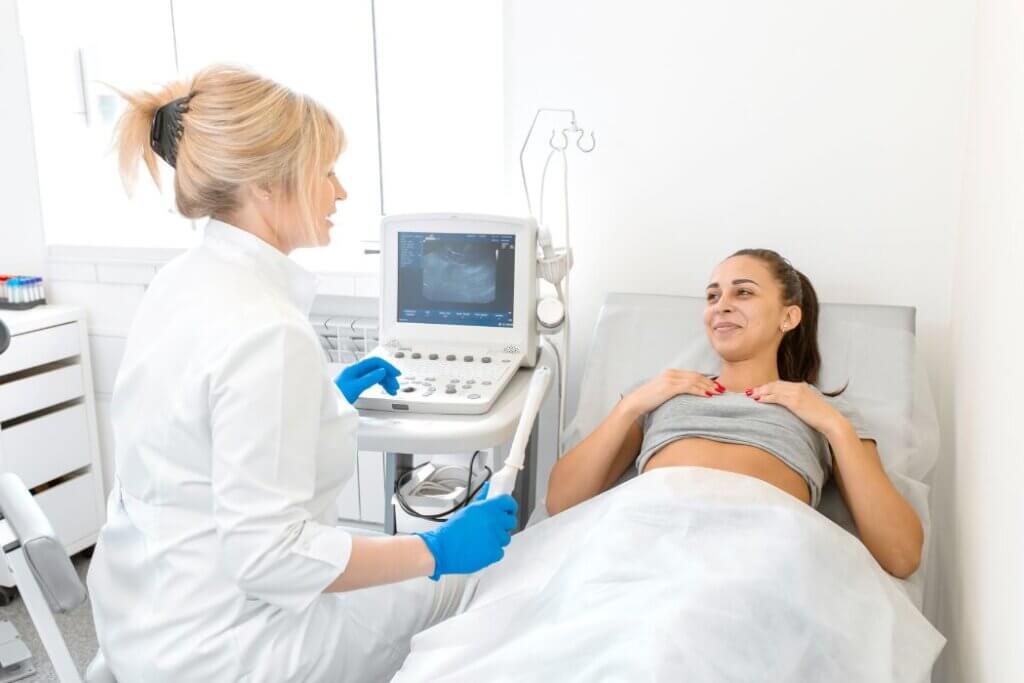Whether you want peace of mind that everything is working as it should before you start trying for a baby or there are symptoms concerning you once you fall pregnant, a transvaginal ultrasound can give you the clarity you’re looking for.
Here are 5 reasons to have this safe and effective procedure.
Fibroid detection

Your transvaginal ultrasound will spot these, and your clinician may need to send you for a myomectomy to have these removed, which can increase your chances of getting pregnant.
Spotting cysts
In many cases, ovarian fluid-filled cysts are harmless and won’t threaten your ability to conceive. However, your fertility might be affected if you have cysts due to endometrioses or PCOS. Laparoscopic surgery may be needed to remove the cysts, a minimally invasive and routine procedure.
Uterine lining problems

There are natural ways of improving the thickness of the uterine lining, including taking exercise and limiting substances that restrict blood flow. We may recommend estrogen supplements or refer you for further tests.
Pelvic Inflammatory disease (PID)
Whilst PID is detectable with a swab, and occasionally with touch, your doctor here at Bodyvie may recommend a transvaginal ultrasound to gain ironclad confirmation. 1 in 10 women with PID becomes infertile, but the good news is that the risk of infertility is significantly reduced with early detection.
Antibiotics are usually sufficient for eliminating the infection, though some women may need to go to the hospital for surgery if an abscess is found to be the cause.
Detect the fetal heartbeat at 6 weeks
The NHS will invite you for your first scan at around 10-14 weeks. However, if you’ve had trouble conceiving in the past and would like the peace of mind that things are progressing well, it is possible to have this at six weeks at a private clinic.
A 6-week ultrasound scan is also instrumental for detecting ectopic pregnancy, which poses a particular risk to women opting for assisted reproduction.
Even if you have conceived naturally, 6 weeks scans are highly recommended as they can detect a blighted ovum, which is the cause of 50% of miscarriages.
Radiation-free procedure
Transvaginal ultrasounds do not use any radiation, unlike an X-ray. This makes them suitable and safe for your fetus.
Experienced & caring clinicians working for you
Our sonographers here at Bodyvie understand that preparing to conceive and become pregnant can be as stressful and challenging as exciting and amazing.
Our team of doctors and sonographers are experienced and here to look after your emotional welfare.
Contact us here at Bodyvie to book your transvaginal ultrasound or learn more about our ultrasound services.














I was so relieved when the results of my transvaginal ultrasound showed that everything was normal. I feel like I can finally move forward with my plans to conceive a child.
I have been having extremely painful periods and was advised to get a transvaginal ultrasound to check for fibroid, is there anything I need to do to prepare myself for the test? Also is there a specific time of my cycle that I should book the test for?
I recently had a transvaginal ultrasound to detect pelvic inflammatory disease (PID), and it provided the much-needed confirmation. Early detection of PID is crucial to reduce the risk of infertility, and I’m grateful to my doctor for recommending this procedure. Antibiotics successfully treated the infection, and now I can focus on my journey to motherhood with peace of mind.